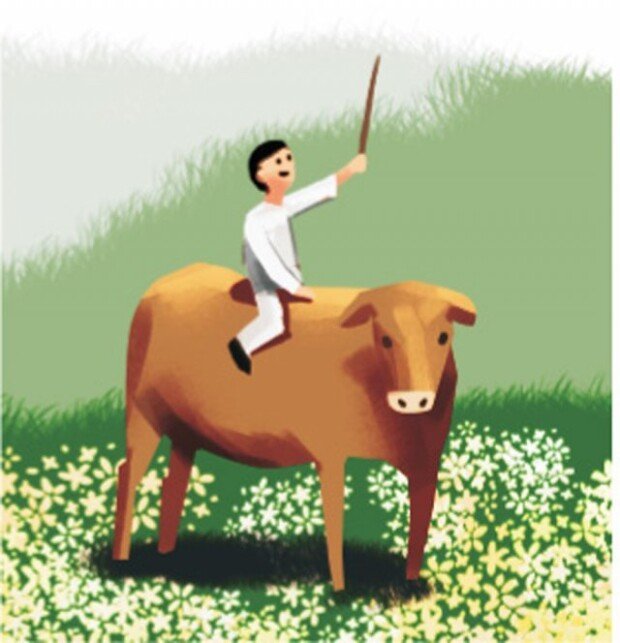Bunch of blooming flowers
Bunch of blooming flowers
Posted March. 06, 2021 07:13,
Updated March. 06, 2021 07:13

A knight in the West wandering around in search of a dragon, holding a spear in his hand, and riding the horse. “Siegfried, Die Nibelungen: Siegfried (The Song of the Nibelungs)” tells a story about a hero that catches a dragon. When people in the West were singing along songs of blood-shed, we Koreans would widely enjoy singing songs of flowers blooming in droves. A child, in lieu of the knight, rides in the back of a cow instead of horse, and wanders around field, performing a reed pipe in lieu of the spear. Think about a boy watching cattle and a cow carrying the boy in its back at field side. This trio have filled our heart and mind. We have never seen a boy watching cattle throughout our life, but we feel as if we have been watching such nostalgic pastoral scenery since long time ago.
I realized the very moment I read the first line of the poem that this is a utopia that cannot be reached. It is a place where we are longing for a visit but where we can never reach. In the poem, the child and the cow can communicate with each other even without speaking a word. It is a world of fullness that was only possible during ancient times. In the poem, only scent spreads out without ant hints of sights and sounds in the market.
As Korean poet Lee Sang-hwa said, the most beautiful thing exists only in the dreams. If you are dreaming a dream in which you feed a white cow a bunch of blooming flowers or reeds, you will feel truly good in that night. However, if you dream such a dream these days, you will feel sad
because all magnolia flowers and pansy will bloom and wither even without noticing that this spring. Both all individuals—grownups and children— have the same desire of watching the sky, smiling innocently.
Headline News
- Med professors announce intention to leave hospitals starting Thursday
- Bridge honoring Sgt. Moon Jae-sik unveiled in Pennsylvania
- Chief of Staff Chung tells presidential secretaries to stay away from politics
- US FTC bans noncompete agreements
- N. Korea launches cyberattacks on S. Korea's defense companies







